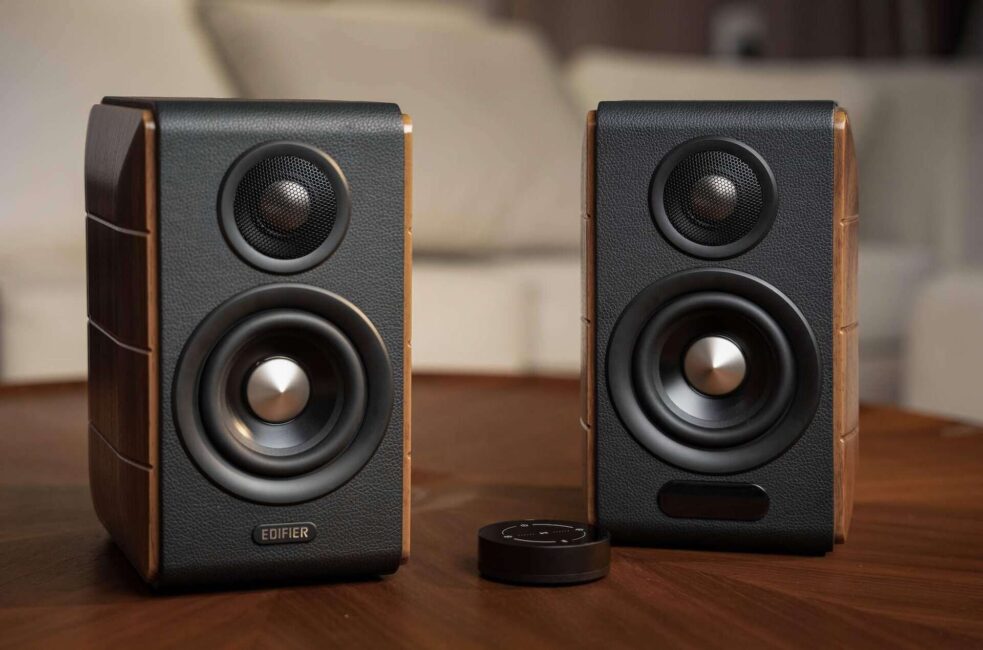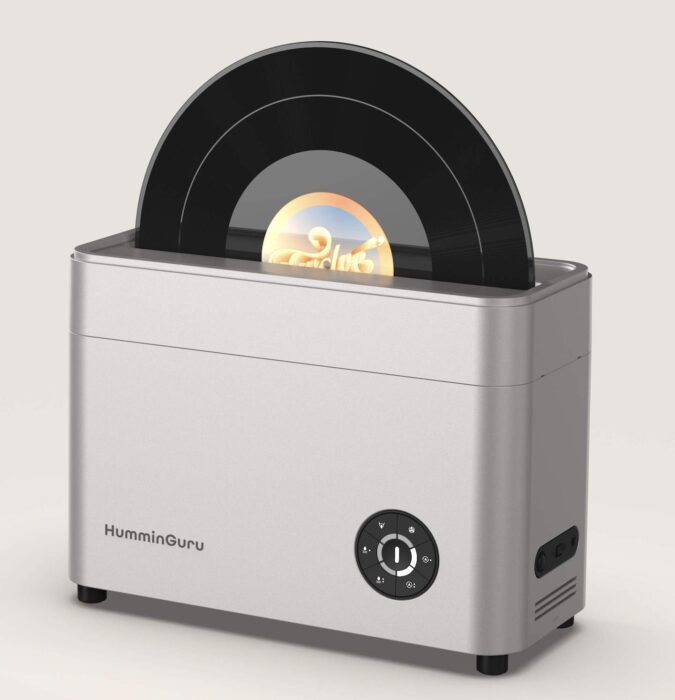The Article
STATEMENT II CABLES FROM TELLURIUM Q
12th May 2023

The company’s super high-end cabling series has received an unexpected upgrade. Paul Rigby is intrigued
And yes, intrigued is what I am as I type these words before I listen to the cables themselves in the Sound Quality tests below.
I last reviewed the original Statement cables – the ‘Statement I’ cables I suppose we should now call them – back in March of 2019 and was quite stunned by the sound quality. In fact, I gave them a full marks Golden Groovy. The one and only time I’ve ever done such a thing for a set of cables.
The Statements are super high end but that wasn’t the reason I gave them 10/10. I’ve reviewed plenty of expensive cables – some more expensive than the Statements – which have sounded average, if not poor. So no, price wasn’t a factor.

Most (well all that I’ve heard) top performing cables spend their time ridding themselves of parasitic noise of one sort or another and freeing the pathway for the sound signal to move from one component or another.
There’s plenty of award-winning cable reviews on this site which do just that.

That is, these cables don’t increase sound quality in and of themselves but they prevent data loss, you might say. So when I say that they ‘sound great’, what I mean is, they don’t harm or interfere with the signal. The more signal that gets through, and it’s the subtle stuff that’s the hardest to transfer (the subtle stuff is the hardest sonic element for any HiFi component to transfer, actually) , the better the cables ‘sound’.
WIDE BAND CABLING
The Statements are not like that. It’s difficult to explain but its almost like these cables not only retain basic sound signal integrity but they also also retain additional information that most cables don’t include, even other cables in the Tellurium Q range. It’s as if the Statements offer a wider data path to allow more information to be transferred. It’s like most HiFi cabling is 32bit but the Statements are 64bit. That kind of thing.
That depends on your HiFi, of course. It depends how good that is and it depends on how much information your HiFi can generate in the first place but if your HiFi has the ability to create a 3D soundstage, for example, or can re-position instruments around the soundstage as the original sound mix demanded or any of the hyper-subtle yet super-important positioning and detail retrieval information, then the Statement series is the only series cabling I know to transfer that ‘at the edge’ information – in situ – from the HiFi components to your ears.
The higher-end your HiFi, the better the Statements will sound because the Statements have capacity. Capacity to hold instructional information from the sound source.
The result of that transfer sounds like your music has been totally restructured. I don’t think that’s so at all, however. I believe the Statements are merely able to retain the micro-delicate information that the groove – say – is providing. Information that most other cables don’t or cannot handle or have the capacity to transfer. It’s a bit like a data stream that includes Atmos information. If your HiFi can’t process Atmos then you don’t hear or experience Atmos, do you? Simple.
Same thing here. What the Statements appear to do is to allow extra information, new super-subtle information, to pass through. So again, as I stated above, the Statements don’t ‘sound great’ per se. The Statement cables, I believe are just a superior ‘pass thru’ carrier, as it where.
The reason I’m intrigued then is this. I thought that the original Statements were doing that job completely. I didn’t think there was any way to improve them.
Buy hey, I should have know better because, for any number, you can always ‘add one’, right? So maybe that’s what Tellurium Q has done here. Let’s see. To that extent, I inserted both Statement II speaker and interconnect cabling in my reference system.
Oh and in terms of the tech spec for these cables? Forget it. Tellurium Q always keep schtum. Always have. Always will. So let’s move on.
SOUND QUALITY
To begin? I chose a CD single – it’s been years since I listened to this once dominant sub format. On this occasion the Ladykillers disc from Lush but not that particular headline track. I looked elsewhere on this 4-tracker and chose the almost neo-classical Heavenly, dominated by minor-chord laden piano and synth ‘strings’, subtle and abstract vocalisations plus the rocking Carmen that features a particularly clean mix of electric and acoustic guitar, bass, drums and subtle cymbal effects.
First impression? The Statement IIs do everything the Is do but more. So there is no diversification away from the core sonic presentation of the Statement sound. How and why the Statements deliver the sound signal hasn’t changed but the differences are there and, in this rarified league of cabling, they are significant.
HEAVY GUITARS
First up, the electric guitar sounded noticeably heavier. There seemed to be more power rippling through the guitar itself. That is, the guitar crackled with electricity. Its presence was larger, the reverb from the strummed strings crawled and sparkled in a more portentous and threatening manner.
Next up? Focus. The entire soundstage sounded more focused now. This actually aided vocals. I could better hear the lyrics now. They vocals sounded more articulate now. The delivery was clearer and crisper while drums were tighter with added punch.
In fact, the soundstage from my speakers actually split into two layers now. The inner part consisted of the vocals, bass guitar, drums and electric guitar. That was more precise and focused and drew nearer to the centre, towards the stereo image.
At the same time, for the outer part, that created more space on the far left and right which is where the acoustic guitar and cymbals lived. Both of these instruments now had more room to breath and sounded more involved in the mix now.
So much for CD.
ONTO VINYL
I then moved to vinyl and The Moody Blues song Higher and Higher from the London/Threshold LP, To Our Childrens Childrens Children (1969). A song that begins as Sgt. Pepper ends. But the Statement controlled the chaos and turned it into granular noise that even made a sort of sense now. After this is a series of overly-dramatic spoken word pronouncements. That speech was again, articulate, beautifully delivered and had a superb sense of clarity. Behind that rather noble speech sequence, the rest of the band freaked out. Why? Because this was 1969, that’s why.

The Statement II cabling kept a lid on all of this, maintaining discipline while feeding the ear a heap of detail. Throughout, the sense of power and authority from this significant album opener was wholly spectacular. The Statement IIs maintained that graphic and vivid sequence. Giving you emotion but keeping a leash on the energy of the track. So these cables were able to give you the best of both worlds here.
CONCLUSION
I never thought I would ever hear cables superior to the original Statement cables from Tellurium Q but hey, here they are, lying on my floor. The Statement IIs move onwards from the originals but they do so in a progressive manner. They don’t just tweak or nudge the sound quality on by a degree or two, the improvements are noteworthy enough to warrant that Mk.II label. The extra focus and clarity, the improved midrange insight, the enhanced bass power and more.
If you are looking for high-end cables, put these at the top of your list. If you have the budget and hold Statement Mk.I cables and demand every last ounce of sound quality from your HiFi system? Look at an immediate upgrade.
TELLURIUM Q STATEMENT II CABLES
Price: Statement II speaker cable £1707 +VAT /m; Statement II RCA £4033+VAT 1m pair
Tel: 01458 251997
Website: www.telluriumq.com
GOOD: focus, midrange insight, bass power, clarity, soundstage imagery
BAD: nothing
RATING: 9
REFERENCE
Origin Live Sovereign turntable Origin Live Enterprise 12″ arm
Van Den Hul Crimson XGW Stradivarius Cartridge
Icon PS3 phono amplifier
Benchmark DAC
Aesthetix Calypso pre-amp
Icon Audio MB845 Mk.II Monoblock Amplifiers
Quad ESL-57 Speakers with One Thing mod
Blue Horizon Professional Rack System
Harmonic Resolution Systems Noise Reduction Components











Hello Paul,
I am looking to buy a CD player and possibly add a DAC. Like all hi-fi, CD player prices vary in the extreme. Unlike a turntable where you can increase performance with let’s say a cartridge and tonearm and the cost rises commensurately, I do not know what to look for when paying that bit extra for a CD player. As far as I am aware there is no electrical component, laser readers etc that I should look out for that will enhance my listening experience. Basically what I am paying for between a ¬£1K and ¬£10K player? Many thanks. Clive
Hi Clive – I would look at separating the components into the transport and DAC, if you’re looking to maximise your performance with a coax cable to connect the two. You can also examine grounding accessories to lower high-frequency noise and jitter. In general terms? That’s a good start if you’re looking to invest in CD for the future.
Cables are snake oil, its been shown time and time again by measurements…………saddened you stooped to make this review,you are better than this.
Hi Herb – I’ve been reviewing cables since I started my career as a HiFi journalist and liking them too so I’m not sure what reference point you’re referring to when you say that I’m ‘better than this’. From your perspective, I’m as bad as I’ve always been 🙂